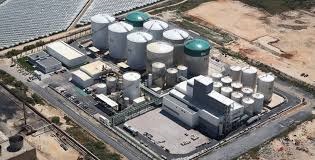Setting up a biodiesel manufacturing facility is an awesome way to jump into the green energy and biofuel world! Biodiesel is a renewable, cleaner alternative to regular diesel, made from things like vegetable oil, animal fat, or even used cooking oil.

1. Raw Materials:
- Vegetable Oils: Soybean, canola, and palm oil are commonly used in biodiesel production.
- Animal Fats: Things like tallow or lard can also be used.
- Waste Oils: One of the coolest things is that you can even use used cooking oil from restaurants! It’s cheap, and recycling waste is always a plus for the environment.
2. Production Process:
- Transesterification: Fancy word, but it’s basically a chemical process where oil or fat reacts with alcohol (usually methanol) in the presence of a catalyst to produce biodiesel and glycerin (a valuable byproduct).
- Purification: After the chemical reaction, the biodiesel is separated from the glycerin and cleaned up to remove impurities.
3. Energy Efficiency:
- A well-designed biodiesel plant is super efficient, especially if you use some of the byproducts like glycerin for energy or other industrial purposes.
- Using renewable energy to power the facility—like solar or wind—adds another layer of sustainability to the whole operation.
4. Green Energy Impact:
- Biodiesel is a star in the biofuel space because it burns much cleaner than regular diesel, reducing emissions like carbon monoxide and particulate matter.
- Plus, it’s biodegradable and non-toxic, so any spills aren’t as harmful to the environment.
- Biodiesel helps reduce our dependency on fossil fuels, which is huge for the green energy movement.
5. Byproducts:
- The main byproduct is glycerin, which can be used in soaps, cosmetics, or even in pharmaceuticals. You can either sell it or use it within your plant.
- Some plants even use the leftover materials to produce biogas, which can help power the facility and further reduce reliance on external energy sources.
6. Applications:
- The biodiesel you produce can be used in any diesel engine, from cars to trucks to generators. It’s a drop-in replacement for regular diesel, so no engine modifications are needed.
- There’s also a growing demand for biodiesel in industries like shipping, construction, and agriculture, all looking to cut down on their carbon footprints.
Setting up a biodiesel facility is a great way to be part of the biofuel revolution, offering a cleaner, renewable alternative to traditional fuels. Plus, with green energy becoming more of a focus globally, there’s a lot of potential for growth in this field.
